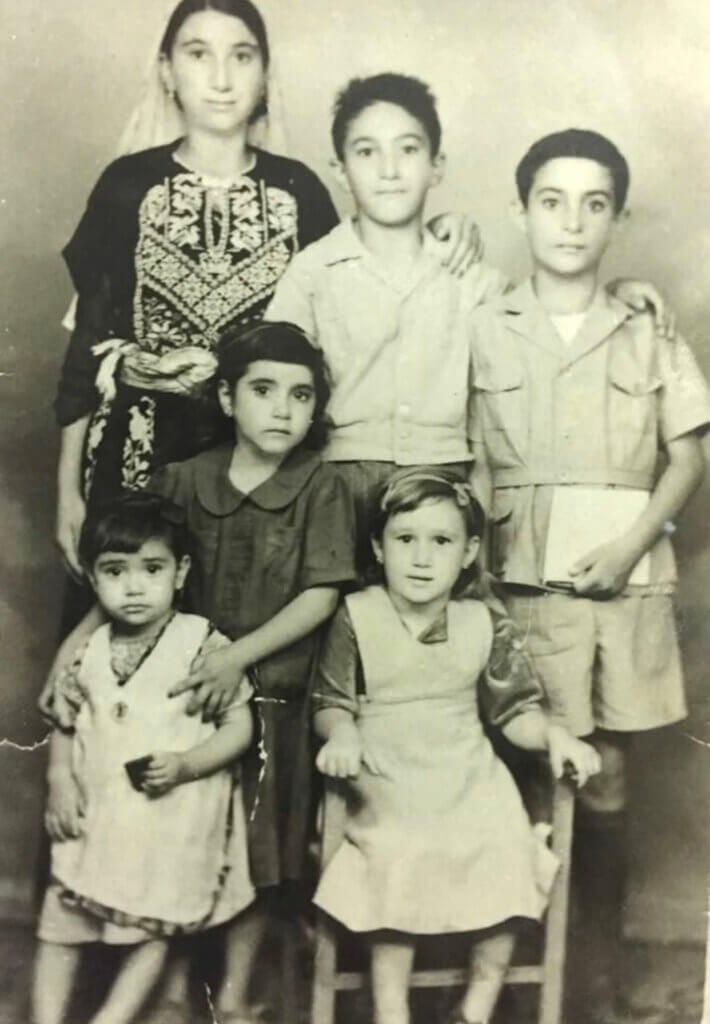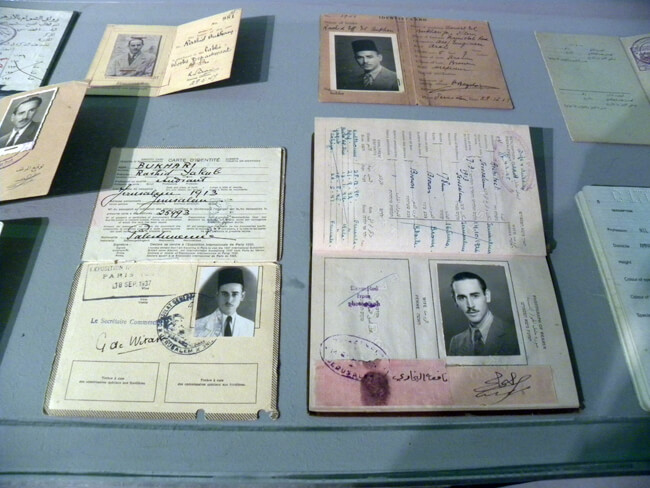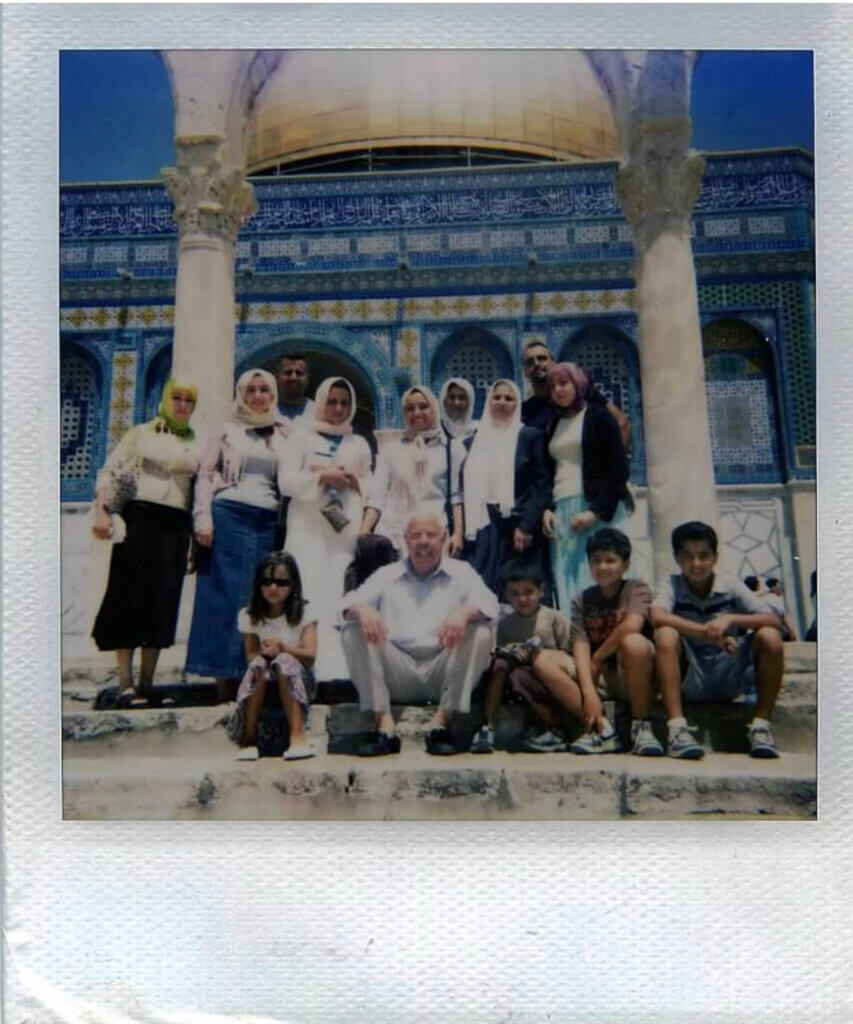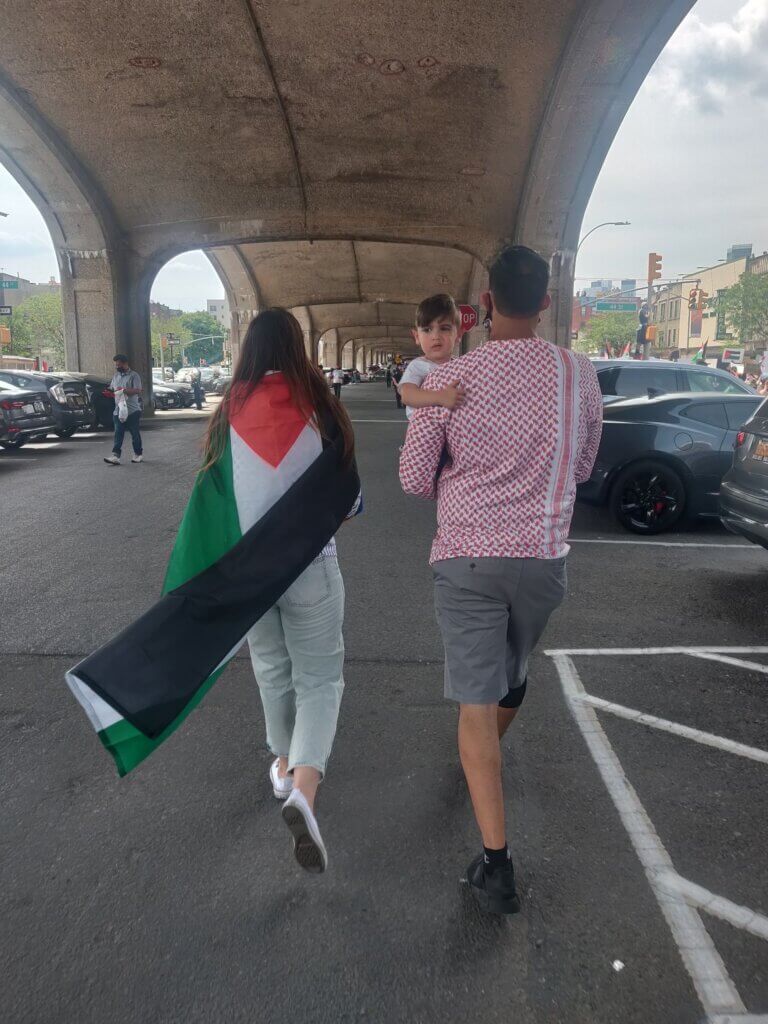My connection to Palestine has always been somewhat of a beautifully tragic one. When I think of Palestine it quite literally feels like my heart is being torn to pieces. I grew up filled with pride for my homeland, but was raised to be proud in secret as a form of self-protection. My identity as a Palestinian woman, something that encompasses all of what makes me who I am from the clothing I wear to the language I so desperately try to speak, to the food I feed my family, is the very same thing that could cause destruction to my reputation and opportunity abroad. I have always been made by “outsiders” to feel as though I had to choose. Be outwardly Palestinian and join in on the fight for freedom of my people and homeland, or be successful and comfortable. They made it seem impossible to have both, and for a very long time I believed it.
Palestine was made a dirty word by our oppressors. Something that can never be understood unless you’ve felt an overwhelming sense of awkwardness by simply stating who and what you are when asked the infamous question — “What are you?” or “Where are you from?” For a very long time, I chose my own comfort and financial success over the freedom of my people. I convinced myself that my ancestors struggled and survived repetitive attempts of genocide so that I could live this comfortable life. That this was what they wanted for me. I bought that westernized line about my grandparents and parents ‘having moved here for a better life’ about our (forced) immigration that we were fed to feel better about living lavish lives while our people suffer abroad – back home. I turned myself into a traitor, and because of this, I have always felt a disconnect to my people and to my ancestral home.
That ends now.

My maternal grandparents immigrated to the United States in the early 70s and my paternal grandparents in the mid-60s. That was after a few years of moving from refugee camps, to new cities in new countries. My mother was born in Jordan, and my father was born in Brazil. Two countries that became my maternal and paternal new homes respectively prior to our immigration to the U.S. following our forced expulsion and displacement out of Palestine. I was born in New Brunswick, NJ, as the first-generation American-born child to my parents.
For generations, the idea of and work towards Palestinian liberation has been forced upon the shoulders of our brothers and sisters in Palestine to carry this fight for us. The ones who we pray will stay in Palestine and fight so we don’t lose what’s left of our land. The ones who we commend for living under a brutal occupation while we sit comfortably here with rhetorical thoughts of, “Well, what can we do?” convincing ourselves that we in the diaspora are powerless. We are not powerless. Our ability and obligation to join in on the resistance will ultimately lead to the freedom we once believed was only a dream.

As a Palestinian of the diaspora, I’ve finally come to understand my role, and quite frankly my duty, to being a real part of Palestinian liberation. Social media has played a huge part in helping me understand how important it is for the world to hear from diaspora Palestinians, and how it in turn helps fuel interest to hear from Palestinians on the ground. Prior to this year, I never truly understood how I could be a part of Palestinian liberation without actually being in Palestine, on the ground, being a part of protests and the physical resistance. Now, I understand that it is our interconnectedness and collective forms of bravery that will lead us to that freedom.
Palestinians globally have grown to be even more connected than ever before. There are more than 13 million of us across the globe and for a very long time, Palestinians in the diaspora felt helpless and didn’t know how to support our brothers and sisters in Palestine. While they fight with their lives, throwing stones that are sometimes literally pieces of their demolished homes, living through the occupation and apartheid and bombardment – it was sometimes impossible to feel like anything we did abroad for the cause would actually help. And then we took over social media. Now, suddenly it feels like all we are all unified and fighting together for the first time, and the collective world is by our side.

This recent Palestinian uprising is all about bravery. Our people in Palestine are brave enough to live stream, record, snap photos, etc. of what is happening to them. Of Israeli night raids and home invasions in the darkness of the middle of the night. Of settlers trespassing in our homes and shooting at us on our own streets. Of the Israeli police and Israeli military gassing us and shooting at us during prayer at Al Aqsa. Of the Israeli government bombing us in Gaza. They are brave enough to film it for us and provide the evidence, relying on those of us in the diaspora to be brave enough to share it widely and continuously. Because of this teamwork, together we have changed this twisted media game forever, and it’s in our favor for the very first time. We have created our own media channels, and we have figured out a way to reach the masses so that our real stories can be seen and heard for the first time on this scale.

What’s been most helpful for me in finding my voice has been honoring what makes our people unique and the traits that connect us to one another. Palestinians are indigenous to the land of Palestine. I identify with the similarities of being an indigenous Palestinian and other indigenous people who have been colonized and massacred. And I’ve been learning about how to talk about Palestine from them. Other tribes talk about their ancestors and the strength they receive from them frequently. They honor their ancestors through the work they do today by educating the blinded public and keeping traditions alive. Palestinians everywhere are feeling very strong ancestral ties to one another; I know I feel it every time I choose to speak up and not temper my words. I am a vocal vessel for my Palestinian ancestors who survived genocide – and for those who did not. Just as Palestinians on the ground are physical vessels. As our ancestors give me the right language to use on my platform to tell our stories, they give our brothers and sisters in Palestine the physical strength to stand face to face with massive tanks, to pull our people out of the rubble after a mass bombing, and they give them the strength to simply “live” and fight through it all.
When I struggle for the right words, I feel ghostly figures of old Sitos (grandmothers) whispering in my ear as my fingers type and my mouth moves. I know what’s being said is a mixture of their words and my own. I imagine that my Palestinian brother living in Palestine, for all the times he has felt any sense of defeat, that another ghostly Sido (grandfather) is lifting him up and straightening his back so that he stands tall and strong in the face of our oppressor. Our ancestors are here. They are with us. I can feel them.

I will not live a comfortable life at the expense of my own people’s freedom. I will not make my words easy to read, nor will I reconstruct my message for a free Palestine for the comfort of others. Comfort is the accomplice to complicity. And complicity leads to the death of my people, and we have certainly seen enough of that.
It took me a very long time to find my voice and so I do not fault others for having yet to find their own. I was given grace and patience and understanding even when I didn’t deserve it. And so I will afford others that same “luxury” while helping you be brave to find and use your voices. To my fellow diaspora Palestinians, we are a part of this revolution. You have a role to play. We cannot abide by the made-up rule that you are to remain silent about our people’s oppression to avoid the blowback here or elsewhere any longer. Our brothers and sisters in Palestine need us as much as we need them.
This uprising is about our interconnectedness and our ancestral lineage – all of which have made us brave. Our ancestors have come back for our right of return, to free our people, and they’re doing it through all of us.

Jenan A. Matari
Jenan A. Matari is an award winning storyteller, founder & Editor in Chief of MissMuslim.nyc, and a kid descendant of Palestinian refugees from Jerusalem.
So where are the Palestinian voices in mainstream media?
Mondoweiss covers the full picture of the struggle for justice in Palestine. Read by tens of thousands of people each month, our truth-telling journalism is an essential counterweight to the propaganda that passes for news in mainstream and legacy media.
Our news and analysis is available to everyone – which is why we need your support. Please contribute so that we can continue to raise the voices of those who advocate for the rights of Palestinians to live in dignity and peace.
Palestinians today are struggling for their lives as mainstream media turns away. Please support journalism that amplifies the urgent voices calling for freedom and justice in Palestine.
Related posts:
Views: 0
 RSS Feed
RSS Feed















 June 10th, 2021
June 10th, 2021  Awake Goy
Awake Goy  Posted in
Posted in  Tags:
Tags: 
















